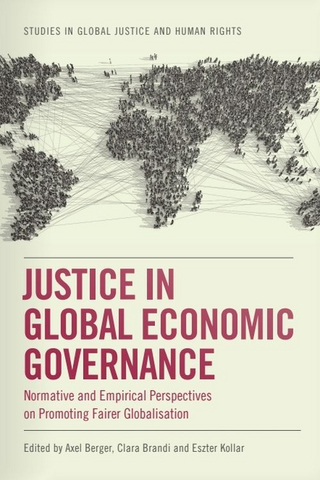
Distributional effects of a globalized digital economy
Hett, Florian / Jakob SchwabExterne Publikationen (2025)
in: Axel Berger / Clara Brandi / Eszter Kollar (eds.), Justice in Global Economic Governance: Normative and Empirical Perspectives on Promoting Fairer Globalisation, Edinburgh: Edinburgh University Press, 179-189
ISBN: 978-1-399-53013-2
Open access
Digital technologies are used in arguably all sectors of the economy and the private sphere. They connect people all over the world, alter production structures and facilitate new business models. As the digitalisation of the economy has the potential to profoundly change global economic interactions, it is likely to also change distributional outcomes. This chapter analyses possible distributional consequences of the globalised digital economy along different dimensions, including intra- and intergenerational socioeconomic distributions and the distribution of political control. We discuss the resulting national and international policy options to address potentially undesired distributional consequences. Specifically, we offer empirical predictions that can be evaluated against normative theories of justice, therby contributing to the analysisof justice in global economic governance. Our conjectures build on the application of basic economic theory to what we consider characteristic, specific features of the digital economy.

